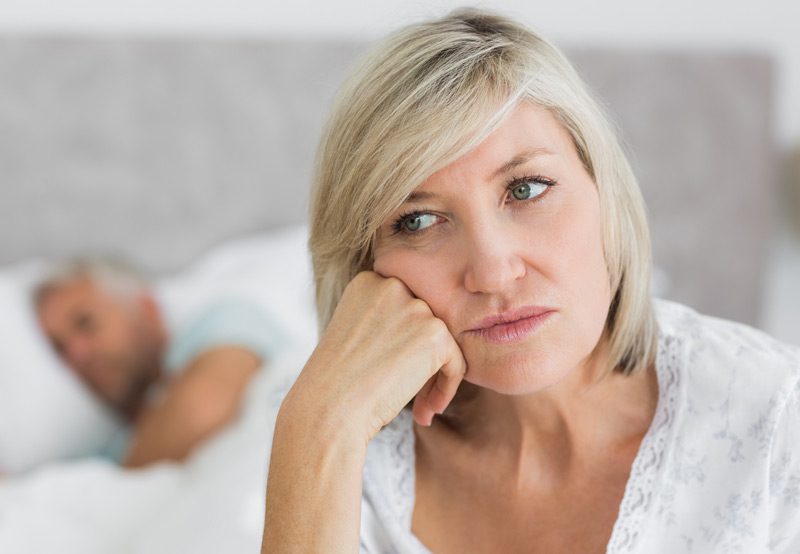

Decreased libido during menopause is a common concern and refers to a noticeable reduction in sexual desire or interest. Hormonal changes, particularly the decline in estrogen and progesterone levels, are often at the root of this issue. Other factors such as vaginal dryness, mood swings, stress, and relationship dynamics can also contribute to reduced libido. Women may experience a loss of desire, difficulty becoming aroused, or a decreased interest in sexual activity.
Causes of Decreased Libido
Decreased libido during menopause can be caused by:
- Hormonal Changes: The decline in estrogen and progesterone during menopause can directly affect sexual desire and arousal.
- Vaginal Dryness: Reduced estrogen levels can lead to vaginal dryness, making sexual activity uncomfortable, which can reduce libido.
- Mood Changes: Hormonal fluctuations often cause mood swings or anxiety, which can negatively impact sexual interest.
- Relationship Factors: Changes in intimacy and other midlife changes that often occur along with menopause may also contribute to a decrease in libido.

Diagnosis
A healthcare provider may diagnose decreased libido during menopause through:
- Physical Examination: Evaluating for physical causes such as vaginal dryness or hormonal imbalances.
- Hormonal Testing: Measuring estrogen, testosterone, and other hormones to determine if hormonal imbalances are contributing to decreased libido.
- Psychological Evaluation: Assessing mental health, including stress levels and mood, that may be affecting sexual desire.
Treatment Options
Treatment for decreased libido during menopause may include:
- Hormone Replacement Therapy (HRT): Restoring estrogen and progesterone to pre-menopause levels to alleviate symptoms of menopause and improve libido.
- Vaginal Estrogen: Topical estrogen creams, rings, or tablets to treat vaginal dryness and discomfort, which may improve libido.
- Lubricants and Moisturizers: Using vaginal lubricants and moisturizers to relieve discomfort and make sexual activity more pleasurable.
Next Steps
If you are experiencing decreased libido during menopause, consult with your doctor to explore treatment options. Addressing hormonal imbalances and improving vaginal health can help restore sexual desire and improve overall well-being. Early intervention can help manage symptoms effectively and enhance quality of life during menopause.
